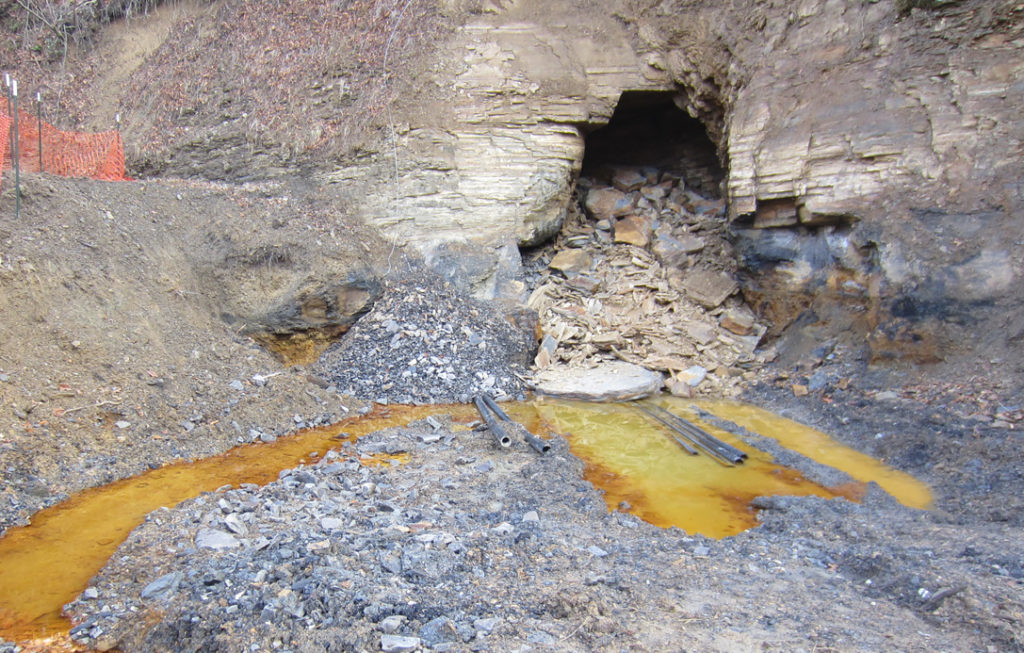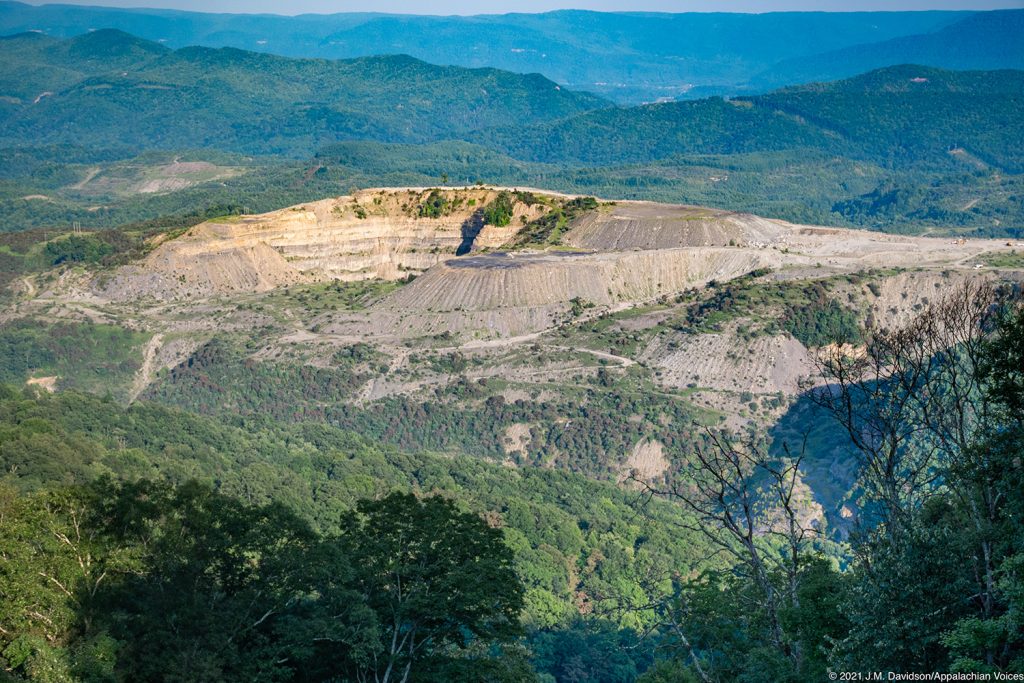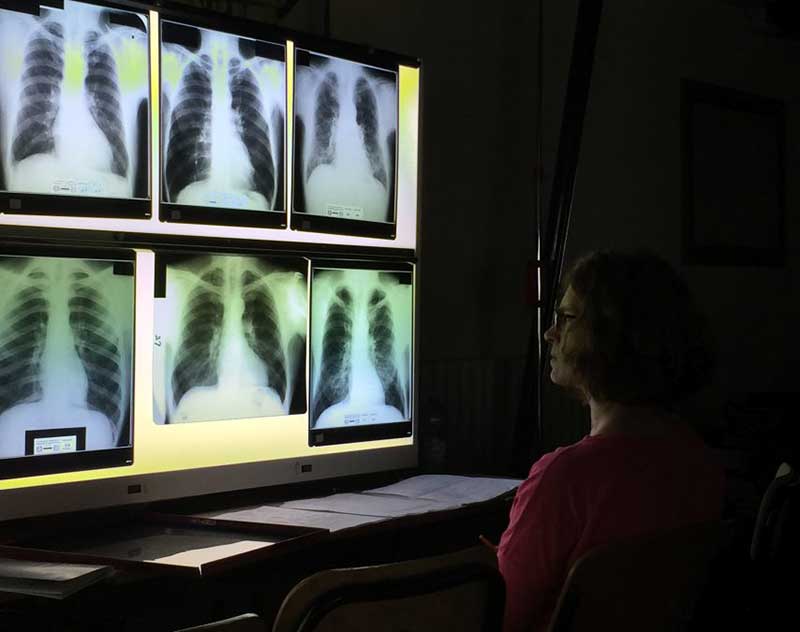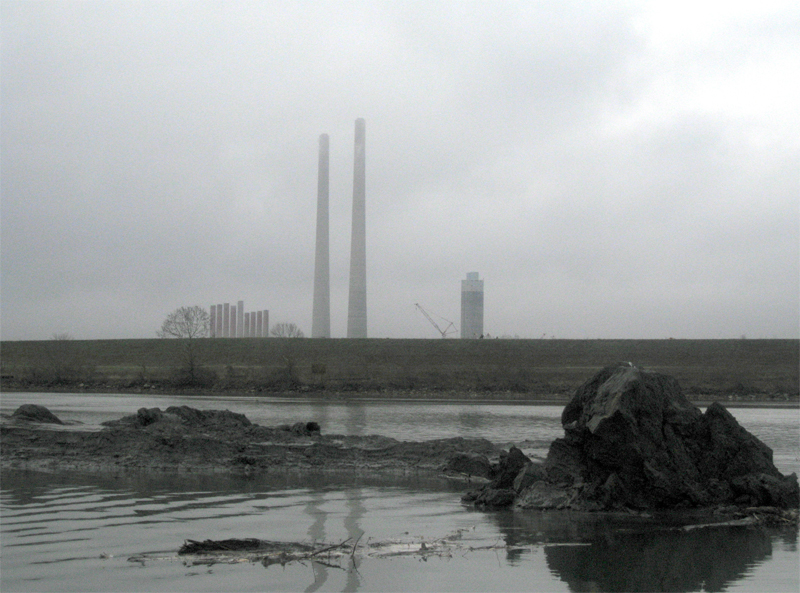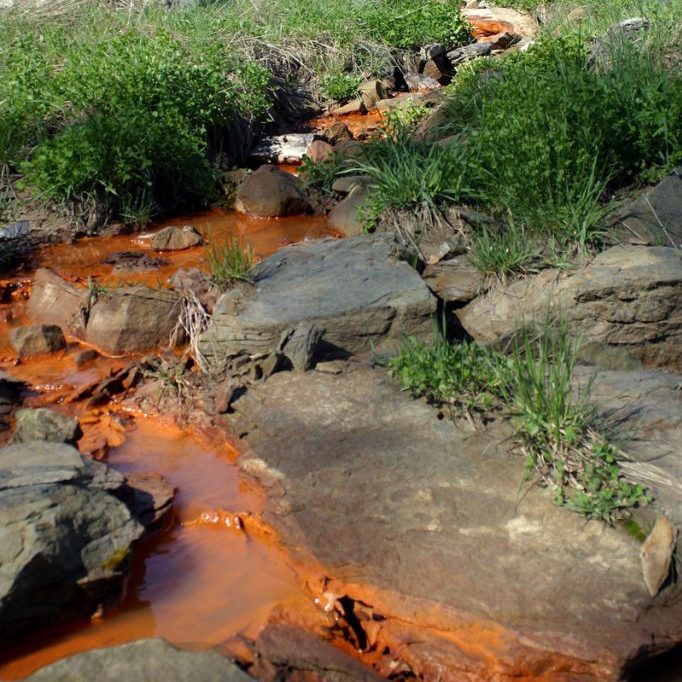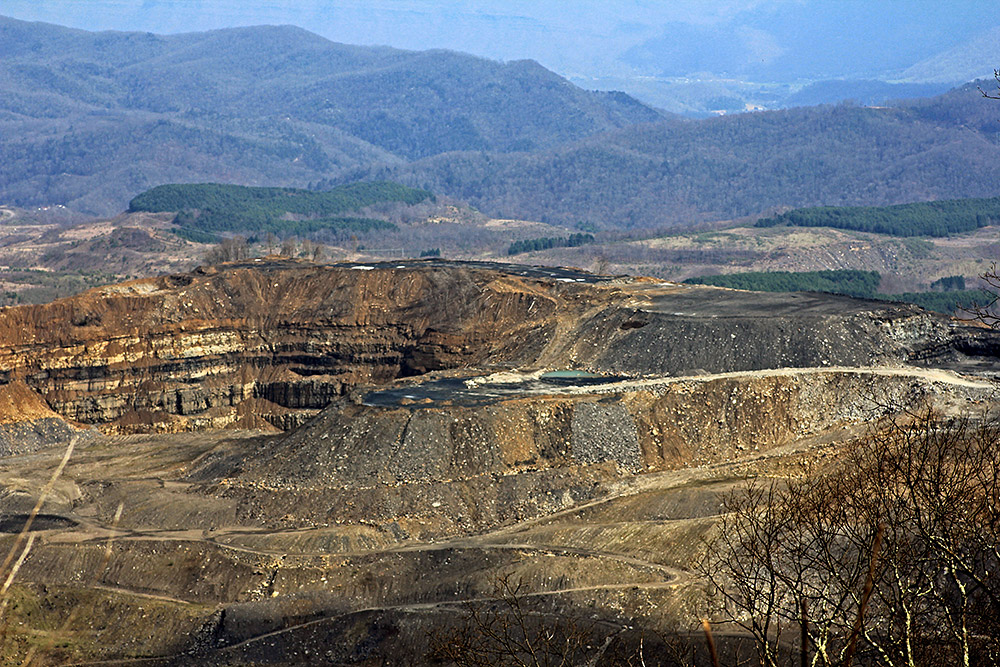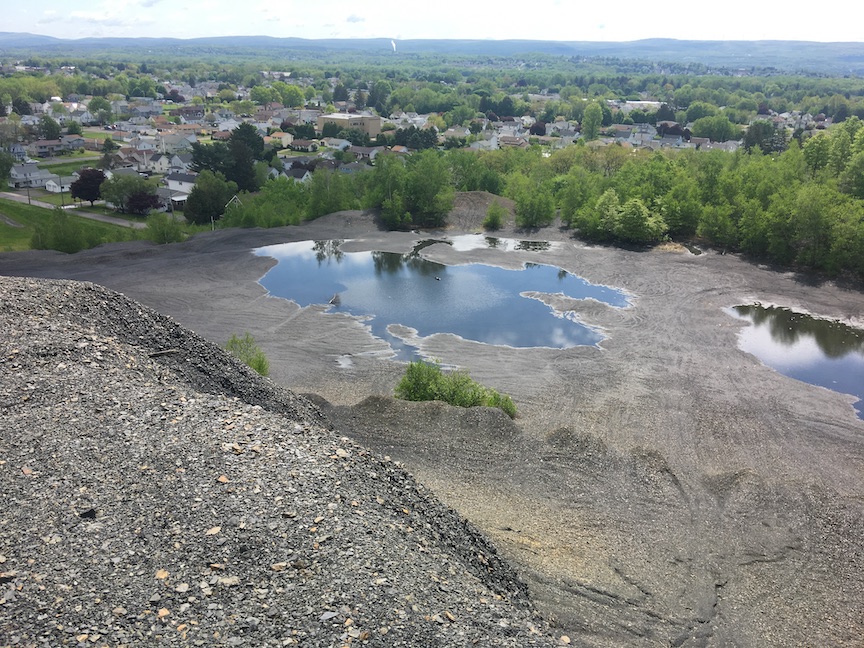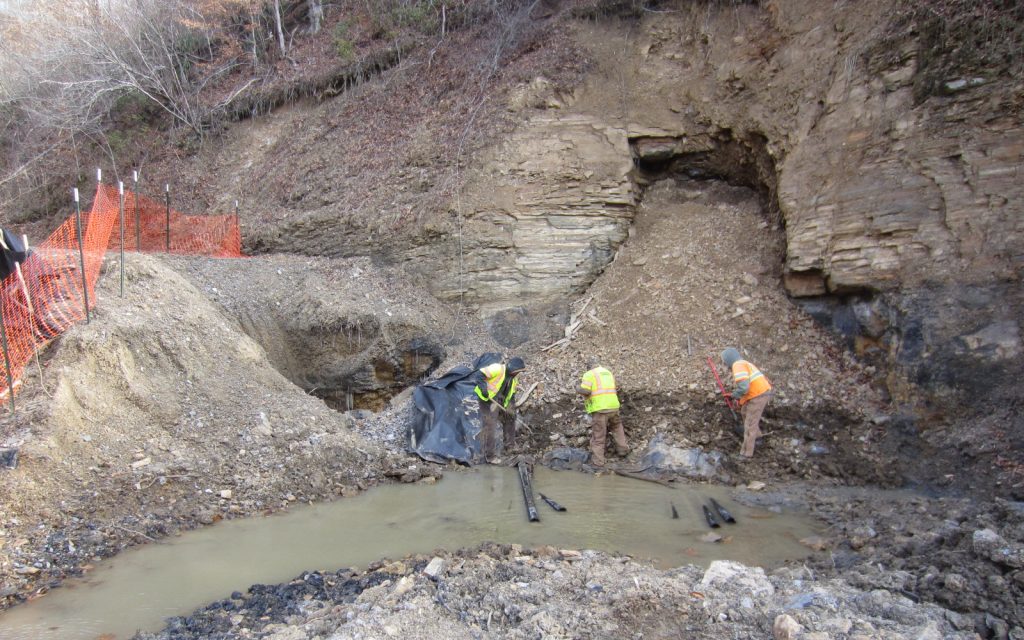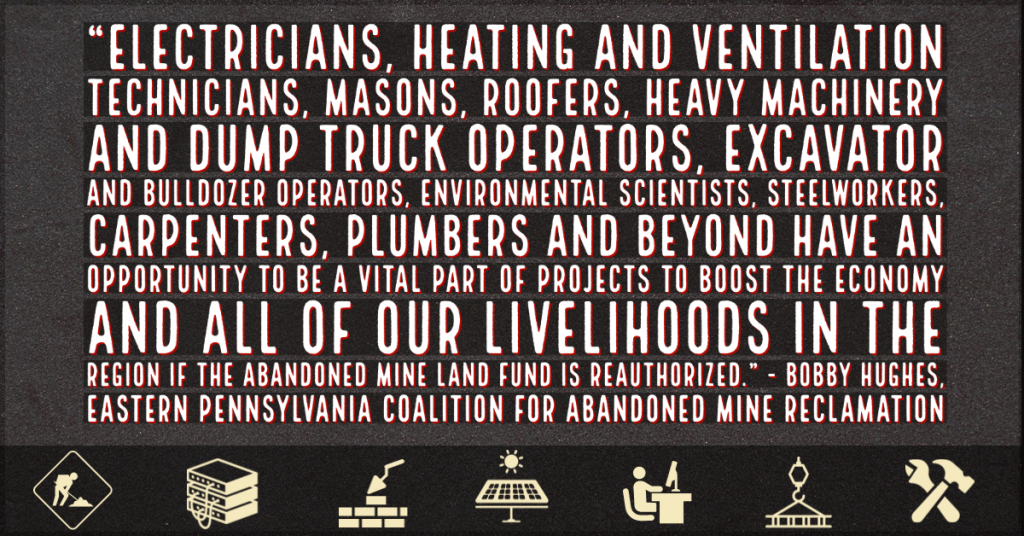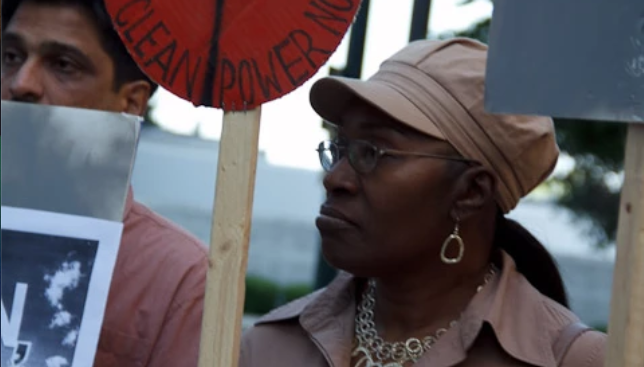Holding the Coal Industry Accountable

An abandoned and decaying structure at the Sugar Cove Mine in Virginia. Photo courtesy of DMME
Centuries of coal mining in Appalachia have left a wake of destruction behind. Thousands of former mine sites still pose health and safety risks, and the extensive environmental damage includes polluted waterways, compromised groundwater, and the loss of 1.5 million acres of forest in one the most biologically diverse temperate ecosystems on the planet.
Residents in this region have dealt with increased illness and shortened life expectancy. Black lung disease is again on the rise, and both current and former miners are fighting to protect their vital healthcare benefits. Communities that depended on the coal industry’s boom years now face daunting financial challenges.
Meanwhile, the bosses and bankers who got rich off of Appalachia realize that the market for coal is continuing to decline. Many are trying to jump ship, taking their wealth with them and leaving the problems for local communities and taxpayers to deal with.

As Appalachian Voices continues to fight new mountaintop removal coal mining permits and monitor existing mines, we are also committed to ensuring that the communities that have long borne the brunt of mining are not left behind. We are determined to hold the coal profiteers responsible for cleaning up the land and water they defiled and fulfilling their obligations to miners and their families.
Communities near mines and power plants are among those that often face elevated air pollution. We’re working with 16 community groups and two universities to track air quality in communities throughout Kentucky, Pennsylvania, Tennessee, Virginia and West Virginia with about 80 monitoring devices. These are deployed at in communities near fossil fuel infrastructure and other industries.
Similarly, the communities living near coal-fired power plants have suffered the burden of air and water pollution created by burning coal for electricity. Our years-long campaign alongside North Carolina communities impacted by Duke Energy’s dangerous storage of coal ash resulted in statewide cleanup orders, and we are committed to making sure the massive utility follows these rules.
We’re also working with communities in East Tennessee, site of the first major coal ash disaster in the country, to ensure that coal ash is stored in ways that protect residents, workers and waterways. And we’re engaged in legal challenges against Trump-era rollbacks on federal regulations for coal ash handling.
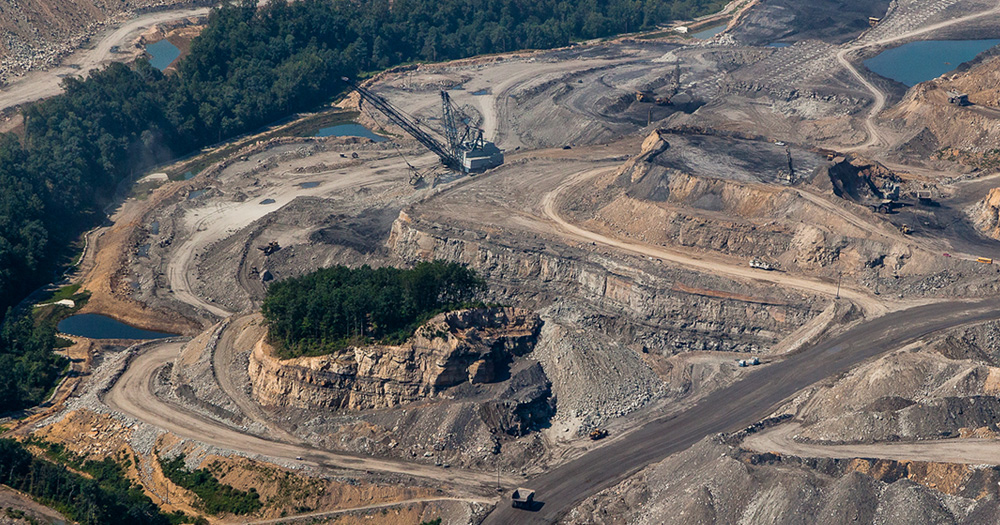
Ending Mountaintop Removal
Since the 1970s, the coal industry has blown up more than 500 of the oldest, most biologically rich mountains in America and destroyed more than 2,000 miles of headwater streams. Despite an ongoing citizen movement to end the destruction, and despite the decline in coal, it’s still happening.
Protect coal miners: Oppose cuts to NIOSH and MSHA
Black lung disease continues to ravage coal mining communities, despite regulations that are supposed to make their job safer. Unfortunately, the federal agencies that provide essential health services to miners are facing cuts.

Latest News
Collapse of the coal industry: Problems and recommendations
Coal mine regulations have not kept up with the industry’s collapse, leaving regulators without the money – or the legal tools – to address growing problems of scarred landscapes and polluted waters.
Coal communities and mine cleanup at the center of federal and grassroots efforts
With bills on the Hill, proposals from the White House, new reports issued and forthcoming from grassroots advocates, and new projects underway, there is a lot happening when it comes to coal communities and mine cleanup!
Upcoming Webinar: Environmental Justice on Western Indigenous Land
The Alliance for Appalachia is hosting a webinar on April 13 to bring solidarity and support to Hopi and Diné people who are facing similar mine reclamation issues in the West.
Biden’s jobs plan holds promise for Appalachia
As an organization that cares deeply about the people, land and water of our region, we find much to applaud in the White House’s American Jobs Plan. Read about what the plan entails and hear from us and partners about what this plan could mean for Appalachia.
Communities call out Duke Energy’s harmful impacts
People from states served by Duke Energy recently testified before the newly formed, independent People’s Commission that the utility’s record on coal ash, electric rates and other issues is harming communities.

